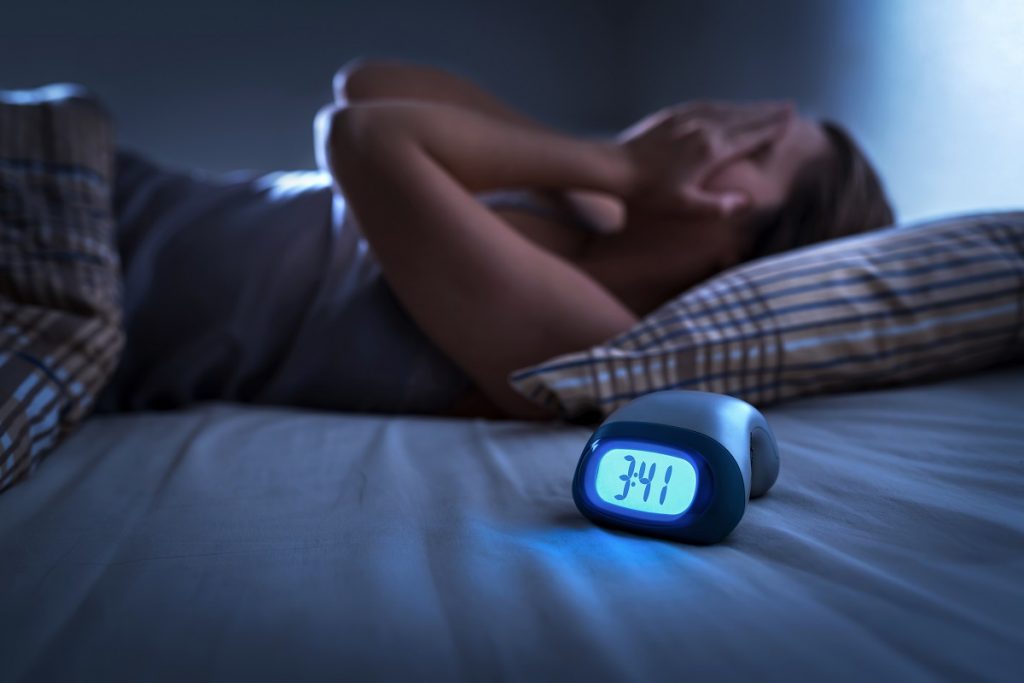
Poor sleep can affect your health in a number of ways
According to the Sleep Health Foundation’s Sleep Health Survey of Australian Adults, between 33% and 45% of adults suffer from sleep difficulties. On average, Australian adults report sleeping for less than seven hours each night, and the consequences for the lack of rest can be felt in many aspects of waking life.
According to the survey, 17% of people have fallen asleep at work and 20% have nodded off while driving. In addition, an rticle on the economic costs of sleep disorders determined that $7494 million is lost each year because of sleep disorders. This figure combines the costs of medical treatments from disorders, injuries, and accidents as well as funds lost because of decreased productivity.
In addition to these problems associated with poor sleep, not getting adequate rest can have a major impact on your weight and overall health.
According to research conducted using data from the Australian Health and Fitness Survey, those who reported sleeping less than recommended had 1.6-1.8 times greater odds of being overweight than those who slept as much as science suggests they should.
How Lack of Sleep Affects Your Body
There are numerous reasons why a lack of sleep can have a negative effect on your body weight. One of the most significant connections between these two factors is how sleep deprivation effects your food intake.
According to research published in The American Journal of Clinical Nutrition, people who slept for less than eight hours consumed 22% more calories than those who slept for more than eight hours. The participants in the study did not report feeling a greater desire for food, but they still consumed significantly more.
In addition, research published in the journal Psychoneuroendocrinology determined that participants who slept for less than eight hours chose food portions that were 14% larger than the portions chosen by those who got more than eight hours of sleep.
There is a scientific reason for this phenomenon. When your body is sleep deprived, it produces more of the hormone ghrelin, which your body uses to stimulate appetite. Your sleep-deprived body will also produce less of the hormone leptin, which inhibits appetite and decreases fat stores. This means that a lack of sleep is effecting your body weight, metabolism, and appetite on a hormonal level.
In another study, researchers determined that people suffering from sleep deprivation are requiring their bodies to use up to 5% more energy to perform their normal daily activities. This suggests that the increased food intake is a natural bodily reaction meant to compensate for increased energy needs.
However, this finding also has significant implications for your ability to exercise after a night of poor sleep; if your body is requiring more energy to simply function, that means that you have less energy available to perform any significant workouts. This, in turn, exacerbates the problem of gaining weight because of increased food consumption by inhibiting you from exercising.
Research in the European Journal of Applied Physiology and Occupational Physiology determined participants suffering from sleep deprivation became exhausted as much as 40% faster during exercise than those who were well-rested.
Advice for a Good Night’s Sleep
So what can you do to ensure that your health and weight are not being negatively impacted by a lack of restful sleep? As it turns out, both food and exercise could be keys to a good night’s sleep.
Foods
Although lack of rest can have a significant impact on how and what you eat, the good news is that you can actually use food to help you sleep better. For example, malted milk contains nutrients such as magnesium and vitamin B12 that can promote sleep. This means that a warm glass of milk before bed can actually be a great way to prevent insomnia.

Baked salmon can promote better sleep
Another healthful food that can help you sleep at night is fatty fish, such as salmon. Fish is rich in Omega-3s, which are great for weight loss and hearth health.
In addition, Omega-3s promote the production of melatonin and serotonin, both of which are necessary to send your body into a restful slumber.
If eating fish right before bed doesn’t appeal to you, some research suggests that kiwis have many of the same sleep benefits as fatty fish. Kiwi is high in antioxidants, which are important for the production of serotonin. Greater serotonin levels have been shown to have a significant impact on your overall quality of sleep.
Much like kiwis, cherries are another fruit rich in antioxidants that can promote the production of serotonin. However, tart cherries are also a natural source of melatonin, making them a fantastic choice for promoting sleep. The effects of cherries on sleep can be realised when eating them whole or as a juice, so a glass of cherry juice before bed could be a great way to sleep through the night.
Tip: we also recommend trying the Isagenix Fresh Essential Oil for a better sleep at night.
Exercise
Sports medicine has long touted the benefits of exercise for sleeping well. This research suggests that exercise helps to use up energy stores, making it easier for the body to drift off into sleep. Exercise also increases the flow of oxygen into your muscles and blood, relaxing your body and promoting restful sleep. Other studies have shown that on days when they performed exercise, participants experienced more of the deeper levels of sleep that are necessary for true rest and recovery.

Exercise can help you rest at night
Some of the best exercises for improving sleep quality are those that increase your heart rate. You should aim to get at least 150 minutes of moderate-intensity or 75 minutes of vigorous-intensity exercise each week to see a significant improvement in how quickly you fall asleep. Good options include running, brisk walking, and swimming.
In addition to cardio, performing strength training can have a positive impact on sleep. By building and toning your muscles, you may notice that you wake up during the night less frequently and awake feeling more rested.
Yoga can also be a great exercise option to battle insomnia. Yoga has been shown to decrease stress, making it easier to fall asleep and stay asleep.

